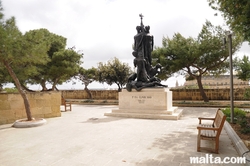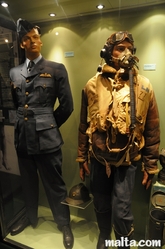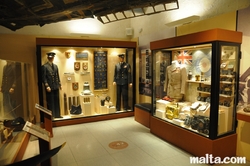British Malta and World War II, an important time for Malta's economy and political situation
Malta's strategic position in the Mediterranean
Under the British King, the Knights of St. John were allowed to return back, however the Maltese people did not want them back. Nevertheless, the only thing that stopped the Knights from returning was the start of another war between France and Britain in 1803.
With many of the European ports unavailable, the British soon realised the importance of Malta‘s location and the island prospered as a shipping way-station during the war, and in 1814, Malta officially became a British Colony. After the Napoleonic Wars, Malta’s trade declined, but it revived once again during the Crimean War (1854-1856) and increased exponentially with the opening of the Suez Canal in 1869.
Power and political turmoil in Malta
With economic growth came major political progress in Malta when, in 1835, a Council of Government made of prominent locals was selected to advise the British governor. In 1849 the Maltese people were given the right to elect 8 of their own representatives and by 1887 the elected members were in majority.
On the 7th June 1919, the Maltese population revolted against the British Government and British troops opened fire into the crowds killing 4 men and injuring 50 others. The event became known as Sette Giugno, (7th of June in Italian), and the day is a public holiday honoured every year.
Unsatisfying Constitution for Malta
In 1921, Joseph Howard became the first prime minister in Malta and the British gave Malta a new Constitution. However it was revoked in 1930, reintroduced in 1932 but revoked again in 1933. Many Maltese were dissatisfied with their country during the early 20th century and migrated to USA, Canada, Australia and Britain and this continued after World War II.
Malta during the Second World War
On the 11th of June 1940, the Italians started bombing Malta the day after they declared war on Britain. The British sent additional airplanes to Malta as the island only had 3 planes to defend itself with.
The bombing continued all throughout 1941, this time by Germany as well, and although supplies in Malta became scarce, the citizens withstood the attacks of the Nazi and Fascist forces.
On the 15th of April 1942, King George VI of the United Kingdom awarded the whole Maltese population the George Cross (the highest civil decoration of the UK), in recognition of their bravery.
A reproduction of the George Cross can be found on the Flag of Malta, while the award can be seen at the National War Museum in Valletta.
In November 1942, the situation in Malta started to improve as the British won a battle in Egypt and the Germans and Italians in North Africa surrendered in May 1943.

